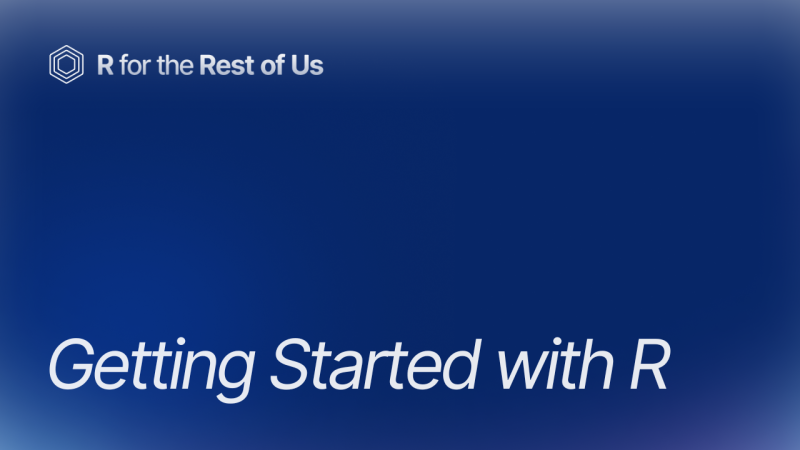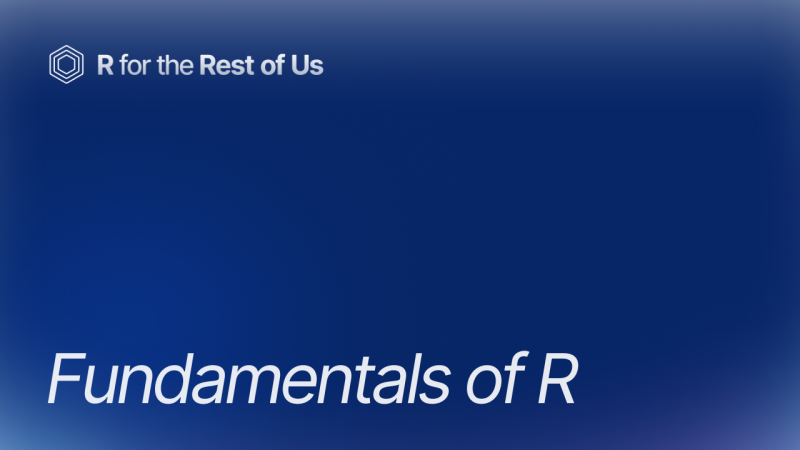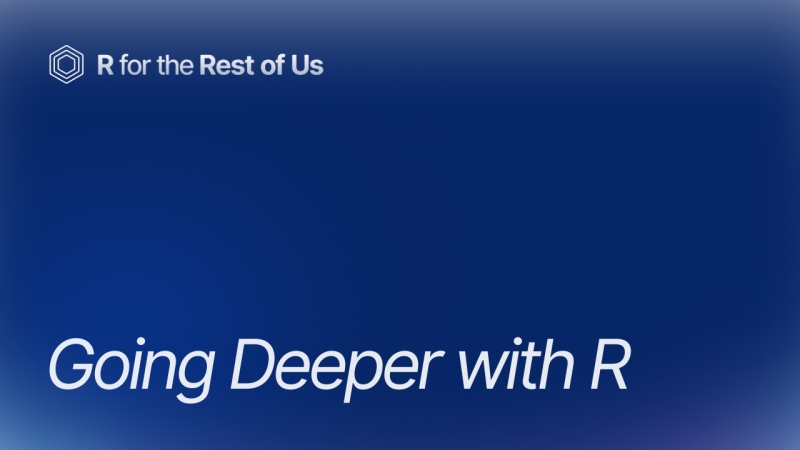Learn to use the most powerful tool for working with data.
Even if you've never coded before.

Supporting forward looking organizations




















New to R?
From "what's R?" to "I love R" in three self-paced courses.
Start here when you're just starting out.
Sign up for the newsletter
R tips and tricks straight to your inbox.
R in 3 Months
Looking for even more? R in 3 Months is a cohort-based program to help you finally learn R.
High-Quality Instruction
With R in 3 Months, you’ll get high-quality instruction that will guide you from R newbie to R expert.
Personalized Feedback
You'll work on your own code every week and get in-depth feedback.
Supportive Community
You'll be on this journey alongside a supportive community that will help you learn and keep you accountable to yourself.
Don't Take it From Us
Our learners say it best.
“I am speechless! I have been trying to feel comfortable with R for so many years. I used to spend so much time looking for resources on the internet, trying to put all the pieces together, and I was always defeated. This course is an excellent shortcut to learning R.
“I really enjoyed this course: * The wording is super clear. * The pace feels just right. * The interface is brilliant to navigate the video through the search box or the script. Thanks for the smooth experience!
“Excellent course to know the basics of this great tool (R).
“What made me decide to engage with R in 3 Months was the focus on accessibility and inclusivity. It promised to simplify the complexity of R and make it approachable for someone like me who didn't have a strong background in programming or statistics. Before the course, my use of R was quite limited and mostly experimental, and I was not fully comfortable with the language. However, after completing R in 3 Months, my confidence and competence in using R have significantly increased. Now I use R regularly for a variety of tasks, such as data manipulation, data wrangling, data cleaning, statistical analytics, and data visualization. This has allowed me to leverage R more effectively in my professional projects.
“For anyone wanting to learn R, I cannot recommend this course enough!
“I have been working with R for the past 3 years and consider myself to be a proficient user, however going through R in the 3 Months course made me realize the breadth of possibilities R offers and how much more there is to learn. I was able to pick up so many handy tricks that made my R workflow much more efficient and easier to reproduce.
“I've used R quite a bit in the past, but until taking this course, I felt like I was navigating a maze with my eyes closed -- running bits and pieces of code and troubleshooting each time I bumped into a wall, but never truly understanding where I'd been or where I was headed. "Getting Started with R" is the map to the maze that I never knew I needed, but now don't know how I'd live without! David clearly explains foundational concepts and makes R so much easier to understand. Whether you're brand-new to R or have been using it for years, I highly recommend this course.
“At first, I thought R was only for stats-minded people and was outside of my wheelhouse as a person who deals more with data extraction, transformation and reporting. However, after going through the R for the Rest of Us courses and learning from David about the vast capabilities of R, I quickly discovered R IS EXACTLY for people like me! Its strength in creating efficient data processing and reporting workflows is beyond amazing, and David – with his deep knowledge and genuine desire to teach and build capacity – is the perfect R guide!
“An excellent clear outline of some of the key fundamental processes in R enabling you to import, clean, process, visualise and communicate your data. Great teaching!
“This was a great course for me, just starting to use R and now I got just the introduction I needed to be up and running using R.
Ready to Up Your R Game?
For when you've got the foundations down and you're ready to learn more.
Let Us Handle the R
High-quality data visualization, workflow improvements, and custom packages to enable organizations to communicate more effectively and more efficiently.
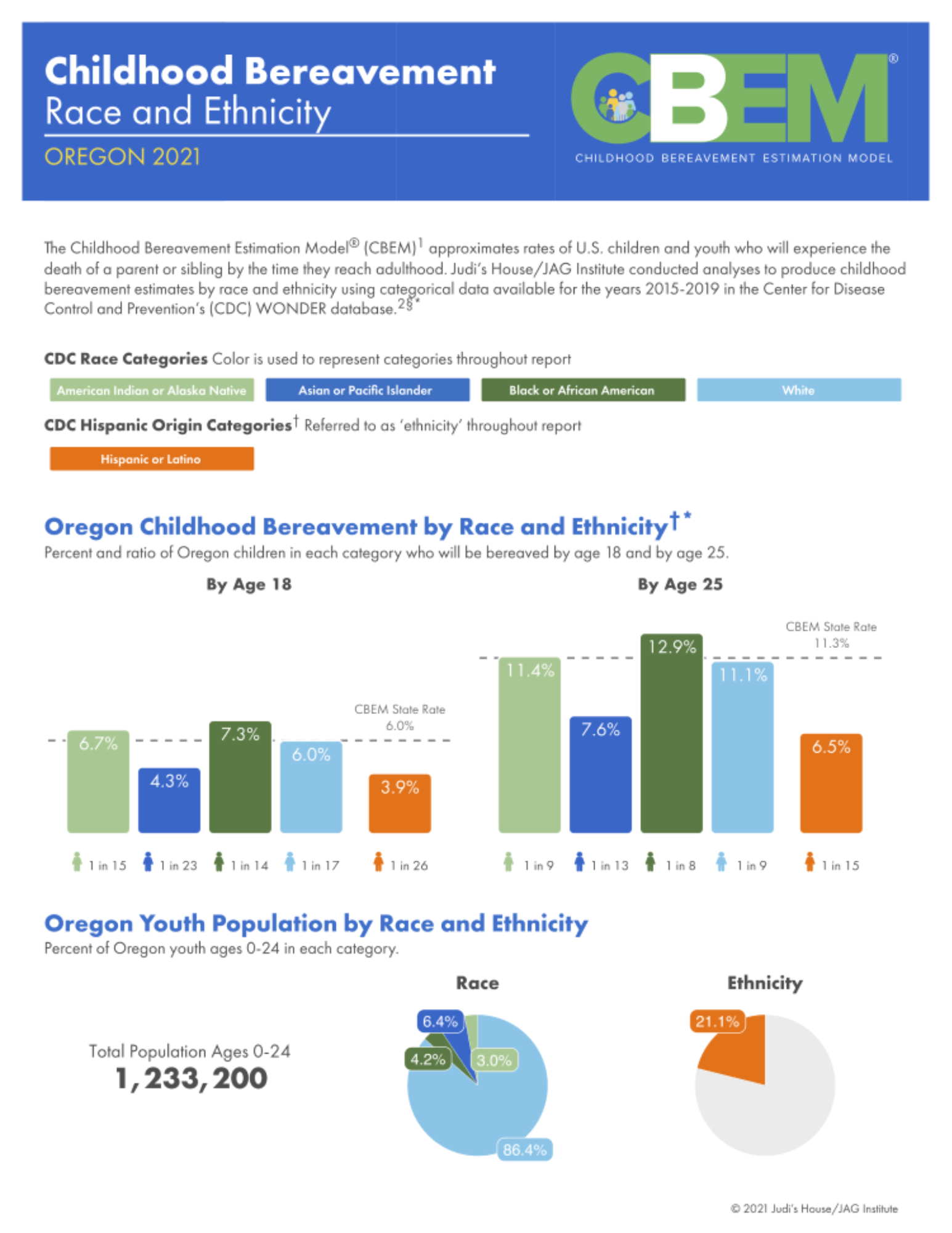
Childhood Bereavement Estimation Model Reports
Judi’s House/JAG Institute, a nonprofit in Colorado, provides support regarding childhood bereavement. In 2018, they created the Childhood Bereavement Estimation Model® (CBEM) to estimate rates of children losing a parent or sibling before adulthood. Annual CBEM reports were produced, but racial and ethnic data breakdowns were lacking until 2021. Partnering with R for the Rest of Us, they generated high-quality, easy-to-understand reports on bereavement disparities by race and ethnicity. These national and state-level reports, created using parameterized reporting and RMarkdown, help advance their vision that no child should be alone in grief.
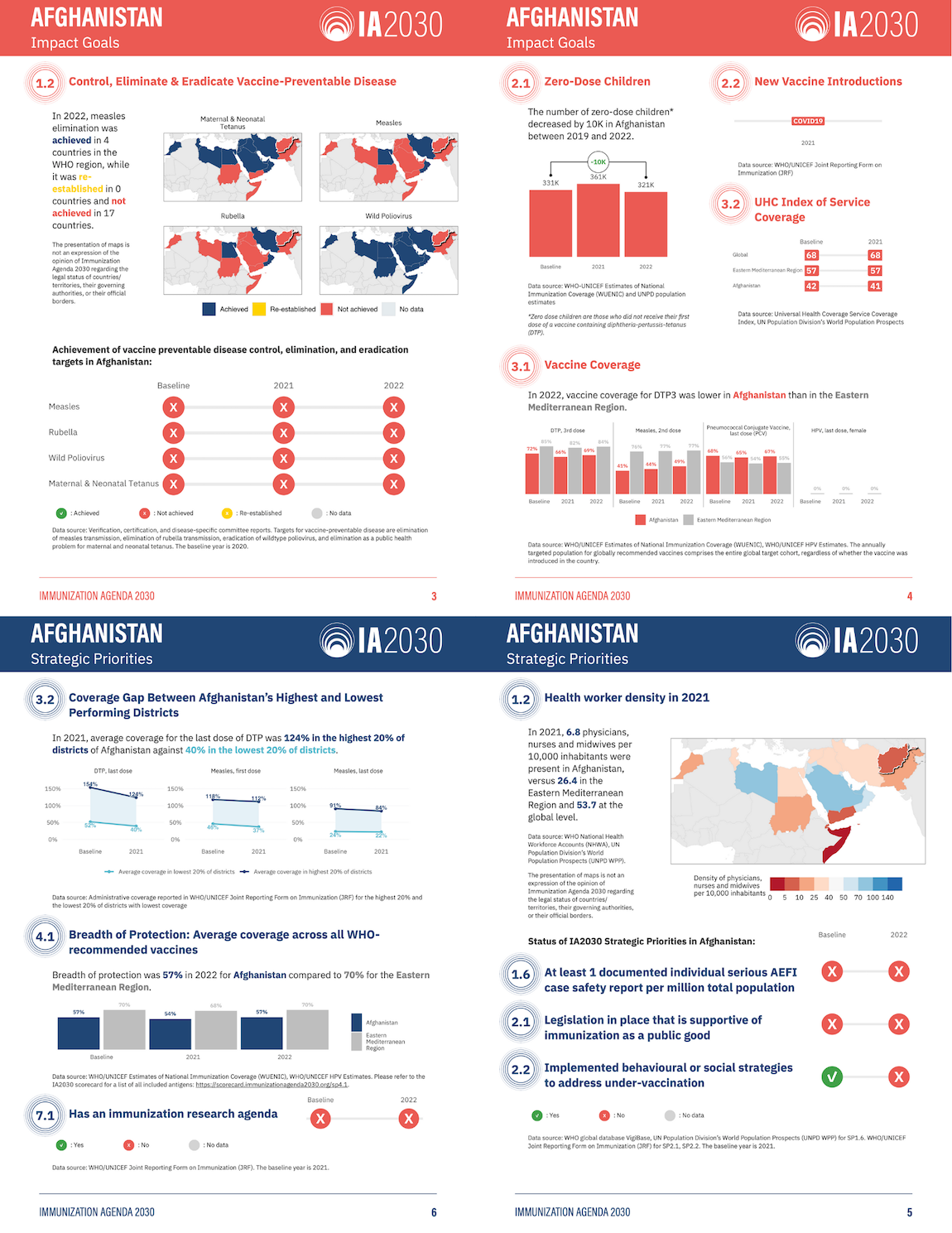
Immunization Agenda 2030 Reports
The World Health Organization's Immunization Agenda 2030 (IA2030) aims to improve global vaccine access. To better report progress, the International Vaccine Access Center at Johns Hopkins University partnered with R for the Rest of Us in 2023. They produced 72 user-friendly country-level reports in English and French, using parameterized reporting. These reports highlight individual country progress, use less technical language than previous online scorecards, and are in a printable PDF format for review.
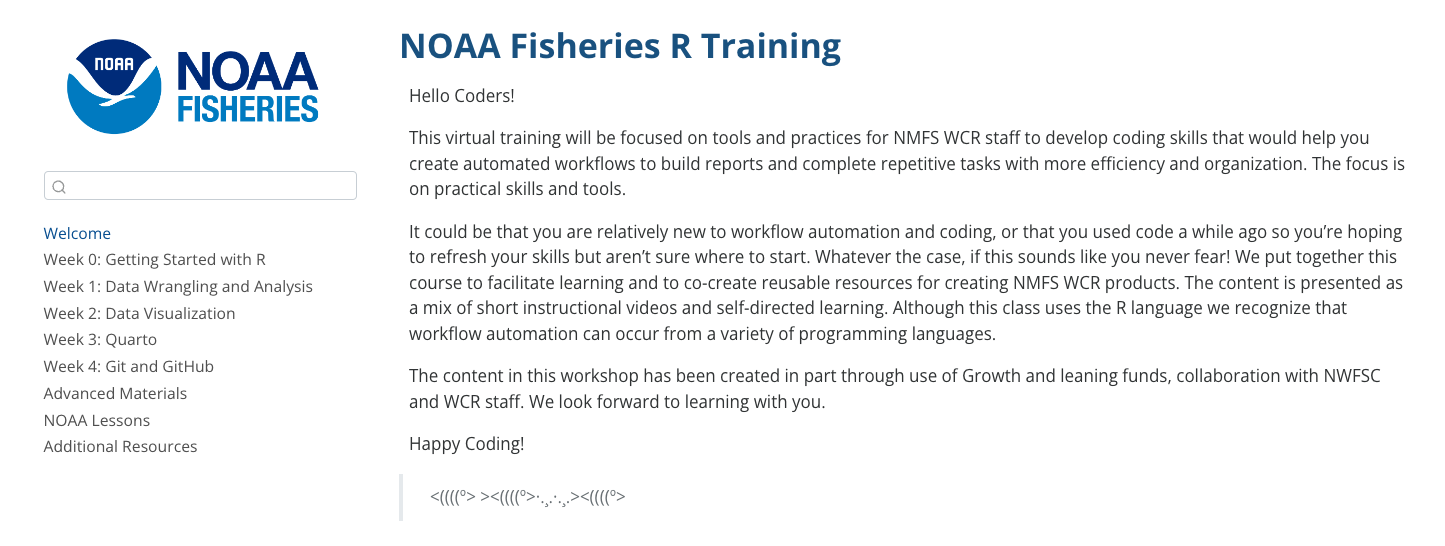
Improving R Training for NOAA Fisheries West Coast Region
Blog
Learn to use the most powerful tool for working with data.
Even if you've never coded before.

How to make heatmaps in ggplot
May 1, 2025
Heatmaps are a common way of representing data. In this blog post, I'll show you how to make your own heatmaps using ggplot. In the process, you'll learn a bit about working with the {sf} package, specifically the st_make_grid() function to make a grid, the st_intersection() function to clip the boundaries of your geography to the grid you create, and st_join() to do spatial joins. This blog post is adapted from a lesson in the Mapping with R course . If you want to learn to make heatmaps...

Use shadows in ggplot to highlight findings
April 24, 2025
In our consulting work, we make a lot of the data visualization for parameterized reporting . It’s something I spoke about in my 2024 Cascadia R Conf talk, How to Make a Thousand Plots Look Good: Data Viz Tips for Parameterized Reporting . One example I gave in this talk came from our work with the Johns Hopkins International Vaccine Access Center and the World Health Organization . In this project, we made reports for the Immunization Agenda 2030 project, which tracks the progress countries...

Create your own custom {ggplot2} theme
April 3, 2025
Creating custom themes in {ggplot2} lets you elevate your data visualizations from standard to standout. Whether you’re aiming for a polished, brand-consistent look for your organization or a unique aesthetic that reflects your personal style, a custom theme function makes it easy to apply your design to all figures with a single line of code. In this tutorial, we’ll cover: the essentials of the powerful ggplot2::theme() function, including how to adjust fonts, colors, sizing, and spacing;...
